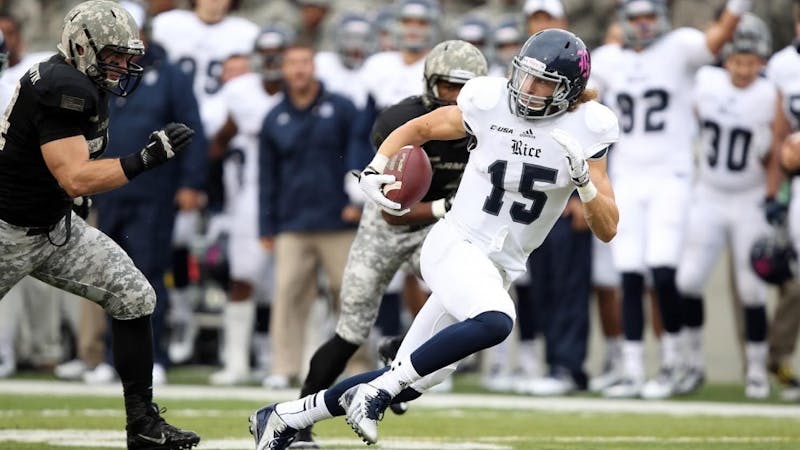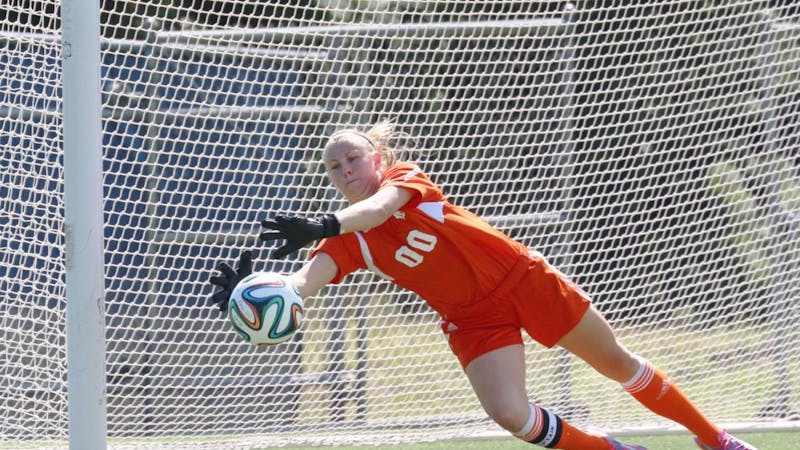Club baseball player ascends to varsity team
Despite not being recruited out of high school, Sanjiv Gopalkrishnan has found his way onto Rice University’s varsity baseball team.Gopalkrishnan, a McMurtry College sophomore, played catcher in high school and continued on to play for the Rice club baseball team. After playing for the club team last year, Gopalkrishnan was elected president of the team before the school year and played with the club team through the first month of the year. After the varsity team’s catchers sustained multiple injuries, however, Gopalkrishnan was given the opportunity to join the varsity team. According to Gopalkrishnan, the opportunity came from the team’s injury situation as well as his relationship with coaches and players.“The story is that one week they had two freshmen catchers get hurt,” Gopalkrishnan said. “Because I made friends with some people on the team last year, they said, ‘Hey, Sanjiv can catch, he’s on the club team, give him a call and I’m sure he’ll do it.’ So Coach [Patrick] Hallmark called me and he asked if I could come out, and the rest is history.”Gopalkrishnan also said he credits his rise to the friendships he made with the varsity team athletes last season.“The first person who recommended me was Michael Aquino, who is a fifth-year student now,” Gopalkrishnan said. “J.C. [Reeves], who was actually one of the catchers who got hurt also backed him up, and Connor Teykl as well.”Since being called up to the varsity team, which lost last season in the regional round of the postseason, Gopalkrishnan has had to adjust to the gap in playing ability and commitment. “[The difference in] skill level is huge,” Gopalkrishnan said. “With club, sometimes last year it was a struggle to get nine guys on the field, whereas for varsity there’s backups for every position and everyone is skilled enough to start. Just in terms of velocities, it’s expected that you throw 85 to 90 [miles per hour], whereas the fastest guy we have for club throws 78.”Although he has joined the varsity team for the fall, Gopalkrishnan understands his role on the team. According to Gopalkrishnan, his responsibility will be to help in practice and make sure pitchers are warmed up before they enter a game. “I see myself being in a purely supporting role,” Gopalkrishnan said. “I don’t expect to play much, if at all. I expect to catch in the bullpen. I don’t even know if I’m on the team for the spring, but for the fall, I’m catching bullpen. I get to play in the intrasquad scrimmage though, which is really cool.”Despite not starting nor earning significant playing time, Gopalkrishnan has embraced the new position with open arms. Even though his chances of earning a roster spot on the team in spring are slim, Gopalkrishnan said he knows he’ll always be viewed as a member of the team.“Michael [Aquino] told me that once you’re on the team, it’s like a fraternity,” Gopalkrishnan said. “They’re always looking out for you — they’re basically your brothers. At first, I got some weird looks, but now I’m definitely part of the team. They all welcome me, and I’m sure that, even if I’m not practicing during the spring, if they see me in the stands they’ll all appreciate me being there and supporting them.”Although he has spent most of the time this season catching in the bullpen, Gopalkrishnan has gained playing experience in intrasquad and competitive situations. Gopalkrishnan earned his first career hit as a Division I athlete on Wednesday, Oct. 15 in an intrasquad scrimmage. Gopalkrishnan is now 1-3 batting in the fall season with an RBI.


